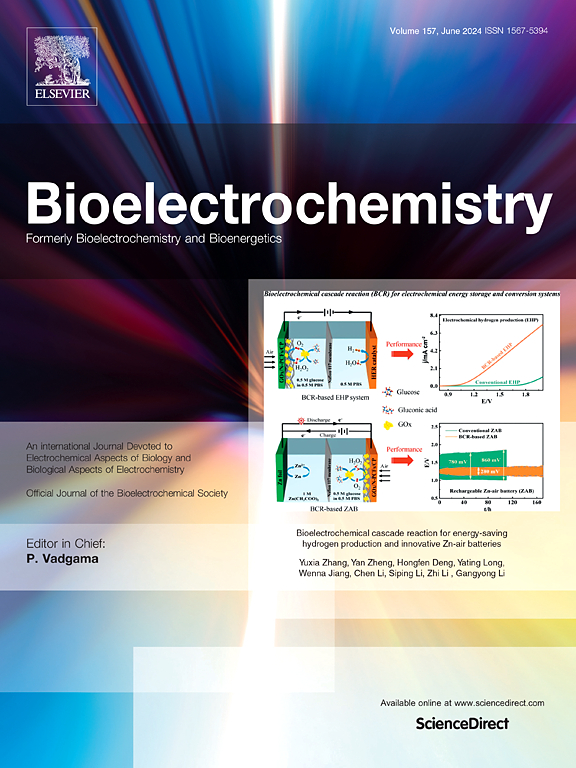Transient impact of chronic social stress on effort-based reward motivation in non-food restricted mice: Involvement of corticosterone
IF 3.6
2区 医学
Q1 NEUROSCIENCES
引用次数: 0
Abstract
Chronic stress has been connected to a reduced effort and motivational deficits. To study effort-based motivation in rodents, operant conditioning is often employed. However, caloric restriction is typically imposed simultaneously. Since caloric restriction is a stressor in its own right, this procedure interferes with data interpretation. Here, we investigate whether chronic social defeat stress (CSD), lasting 10 consecutive days, would alter effort-based reward motivation in mice trained under ad libitum food conditions. Utilizing operant FED3 boxes in home cages, mice were trained within eight days to nose poke for palatable food. After training completion, operant memory was retained for at least 16 days, and mice demonstrated sustained effort, as assessed with a progressive ratio schedule, to obtain reward pellets. Directly after CSD exposure (10th day), mice exhibited reduced effort for palatable food rewards, but also displayed reduced nose poking in general. The effects of CSD on effort were short-lived, with no lasting impact on effort-based reward motivation one week post-stress. As corticosterone (CORT) levels were increased at day 10 of CSD, but not at day 17, we hypothesized that CORT might mediate the acute effects of CSD on effort-based reward motivation. Indeed, CORT administration [100 μg/ml], supplied via the drinking water, mirrored the CSD-induced CORT spike and temporarily reduced reward motivation. Our findings emphasize that CSD does not result in long-term deficits in reward motivation, suggesting a resilient adaptive response in mice under unrestricted feeding conditions. This study underscores the necessity of considering temporal dynamics of stress impacts and highlights the modulating effects of CORT. These insights contribute to a deeper understanding of the resilience mechanisms in motivational impairments and pave the way for further research into factors facilitating this resilience.
慢性社会应激对非食物限制小鼠基于努力的奖赏动机的短暂影响皮质酮的参与
慢性压力与努力减少和动机缺陷有关。为了研究啮齿类动物基于努力的动机,通常会采用操作性条件反射。不过,通常会同时实施热量限制。由于热量限制本身就是一种压力源,因此这种程序会干扰数据解释。在此,我们研究了连续10天的慢性社会挫败应激(CSD)是否会改变在自由食物条件下接受训练的小鼠基于努力的奖赏动机。利用家用笼子中的操作性 FED3 盒,在八天内训练小鼠用鼻子捅可口的食物。训练完成后,操作性记忆至少保留了 16 天,而且小鼠表现出了持续的努力(通过累进比率计划进行评估),以获得奖励颗粒。直接暴露于 CSD 后(第 10 天),小鼠在获得适口食物奖励时表现出的努力程度降低,但戳鼻子的行为也普遍减少。CSD对努力程度的影响是短暂的,在应激一周后对基于努力程度的奖励动机没有持续影响。由于皮质酮(CORT)水平在CSD第10天升高,但在第17天没有升高,我们假设CORT可能会介导CSD对努力奖赏动机的急性影响。事实上,通过饮用水提供的 CORT [100 μg/ml] 反映了 CSD 诱导的 CORT 激增,并暂时降低了奖赏动机。我们的研究结果强调,CSD 不会导致奖赏动机的长期缺陷,这表明小鼠在无限制喂养条件下的适应性反应具有弹性。这项研究强调了考虑压力影响的时间动态的必要性,并突出了CORT的调节作用。这些见解有助于更深入地了解动机损伤的恢复机制,并为进一步研究促进这种恢复的因素铺平了道路。
本文章由计算机程序翻译,如有差异,请以英文原文为准。
求助全文
约1分钟内获得全文
求助全文
来源期刊

Neurobiology of Stress
Biochemistry, Genetics and Molecular Biology-Biochemistry
CiteScore
9.40
自引率
4.00%
发文量
74
审稿时长
48 days
期刊介绍:
Neurobiology of Stress is a multidisciplinary journal for the publication of original research and review articles on basic, translational and clinical research into stress and related disorders. It will focus on the impact of stress on the brain from cellular to behavioral functions and stress-related neuropsychiatric disorders (such as depression, trauma and anxiety). The translation of basic research findings into real-world applications will be a key aim of the journal.
Basic, translational and clinical research on the following topics as they relate to stress will be covered:
Molecular substrates and cell signaling,
Genetics and epigenetics,
Stress circuitry,
Structural and physiological plasticity,
Developmental Aspects,
Laboratory models of stress,
Neuroinflammation and pathology,
Memory and Cognition,
Motivational Processes,
Fear and Anxiety,
Stress-related neuropsychiatric disorders (including depression, PTSD, substance abuse),
Neuropsychopharmacology.
 求助内容:
求助内容: 应助结果提醒方式:
应助结果提醒方式:


